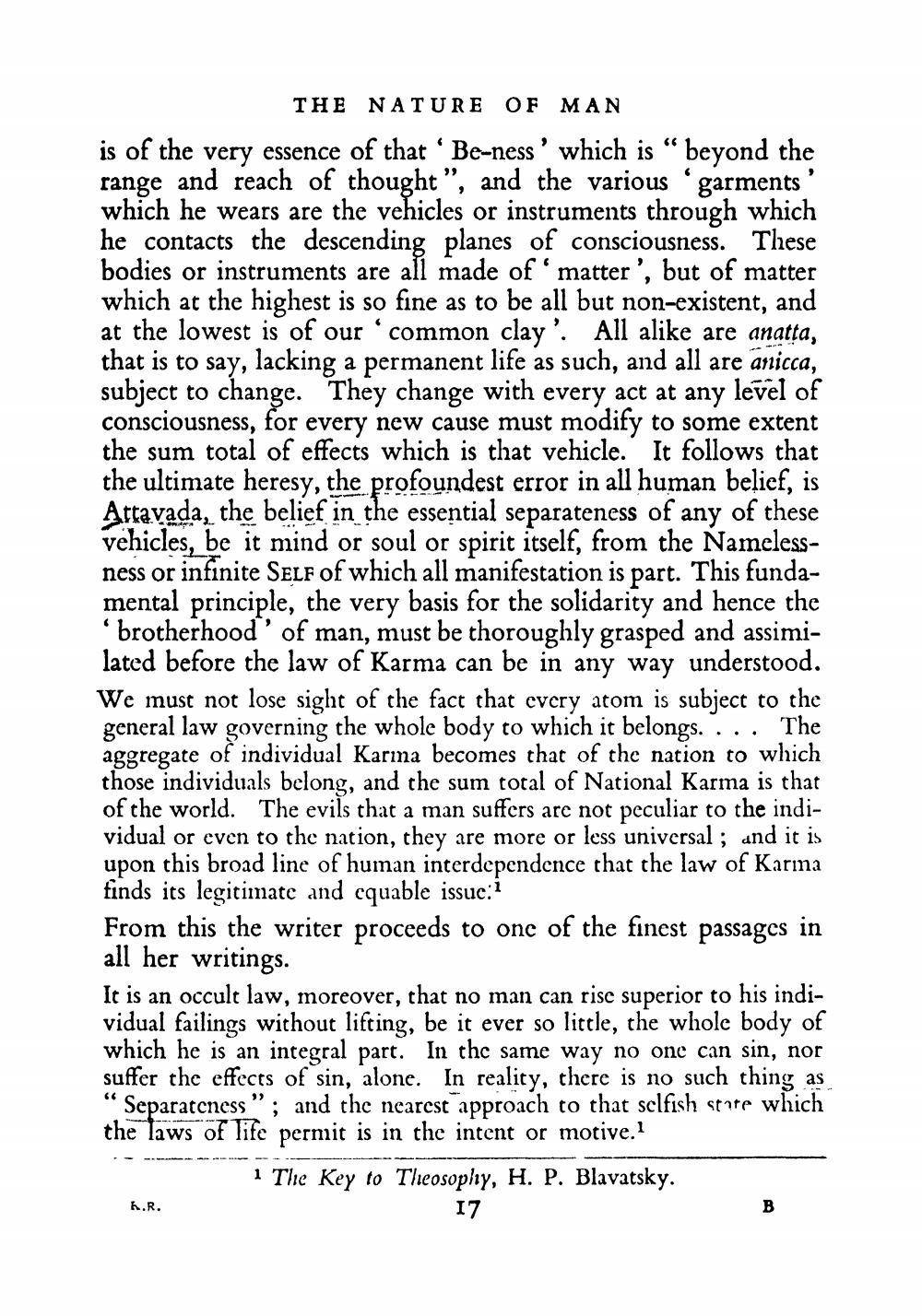________________
THE NATURE OF MAN
is of the very essence of that ' Be-ness' which is "beyond the range and reach of thought", and the various garments which he wears are the vehicles or instruments through which he contacts the descending planes of consciousness. These bodies or instruments are all made of matter', but of matter which at the highest is so fine as to be all but non-existent, and at the lowest is of our common clay'. All alike are anatta, that is to say, lacking a permanent life as such, and all are anicca, subject to change. They change with every act at any level of consciousness, for every new cause must modify to some extent the sum total of effects which is that vehicle. It follows that the ultimate heresy, the profoundest error in all human belief, is Attavada, the belief in the essential separateness of any of these vehicles, be it mind or soul or spirit itself, from the Namelessness or infinite SELF of which all manifestation is part. This fundamental principle, the very basis for the solidarity and hence the 'brotherhood' of man, must be thoroughly grasped and assimilated before the law of Karma can be in any way understood. We must not lose sight of the fact that every atom is subject to the general law governing the whole body to which it belongs. . . . The aggregate of individual Karma becomes that of the nation to which those individuals belong, and the sum total of National Karma is that of the world. The evils that a man suffers are not peculiar to the individual or even to the nation, they are more or less universal; and it is upon this broad line of human interdependence that the law of Karma finds its legitimate and equable issue:i
From this the writer proceeds to one of the finest passages in all her writings.
"
It is an occult law, moreover, that no man can rise superior to his individual failings without lifting, be it ever so little, the whole body of which he is an integral part. In the same way no one can sin, nor suffer the effects of sin, alone. In reality, there is no such thing as Separateness"; and the nearest approach to that selfish store which the laws of life permit is in the intent or motive.1
66
K.R.
1 The Key to Theosophy, H. P. Blavatsky.
17
B




